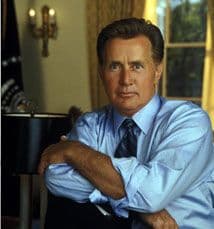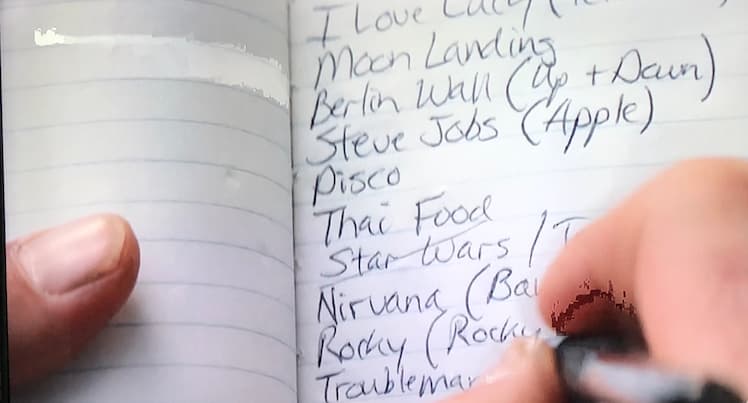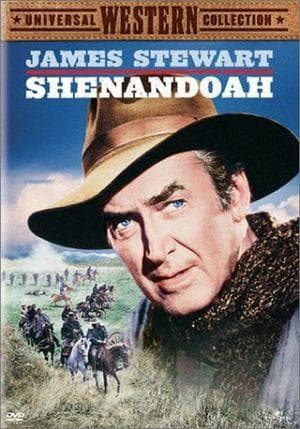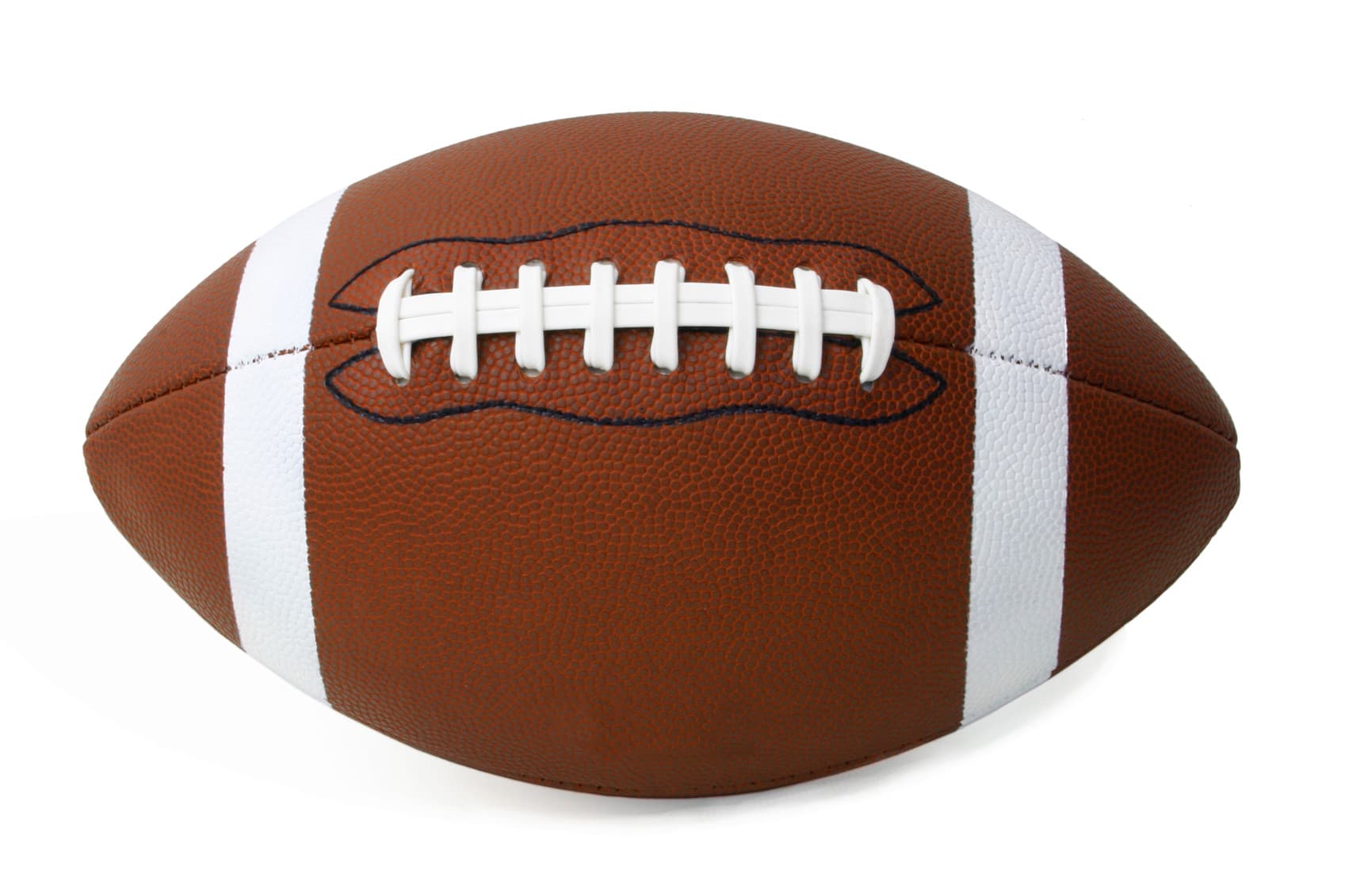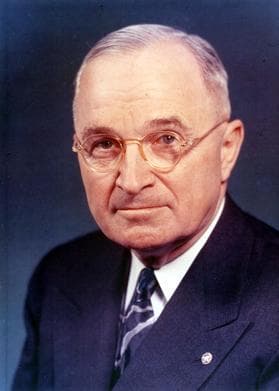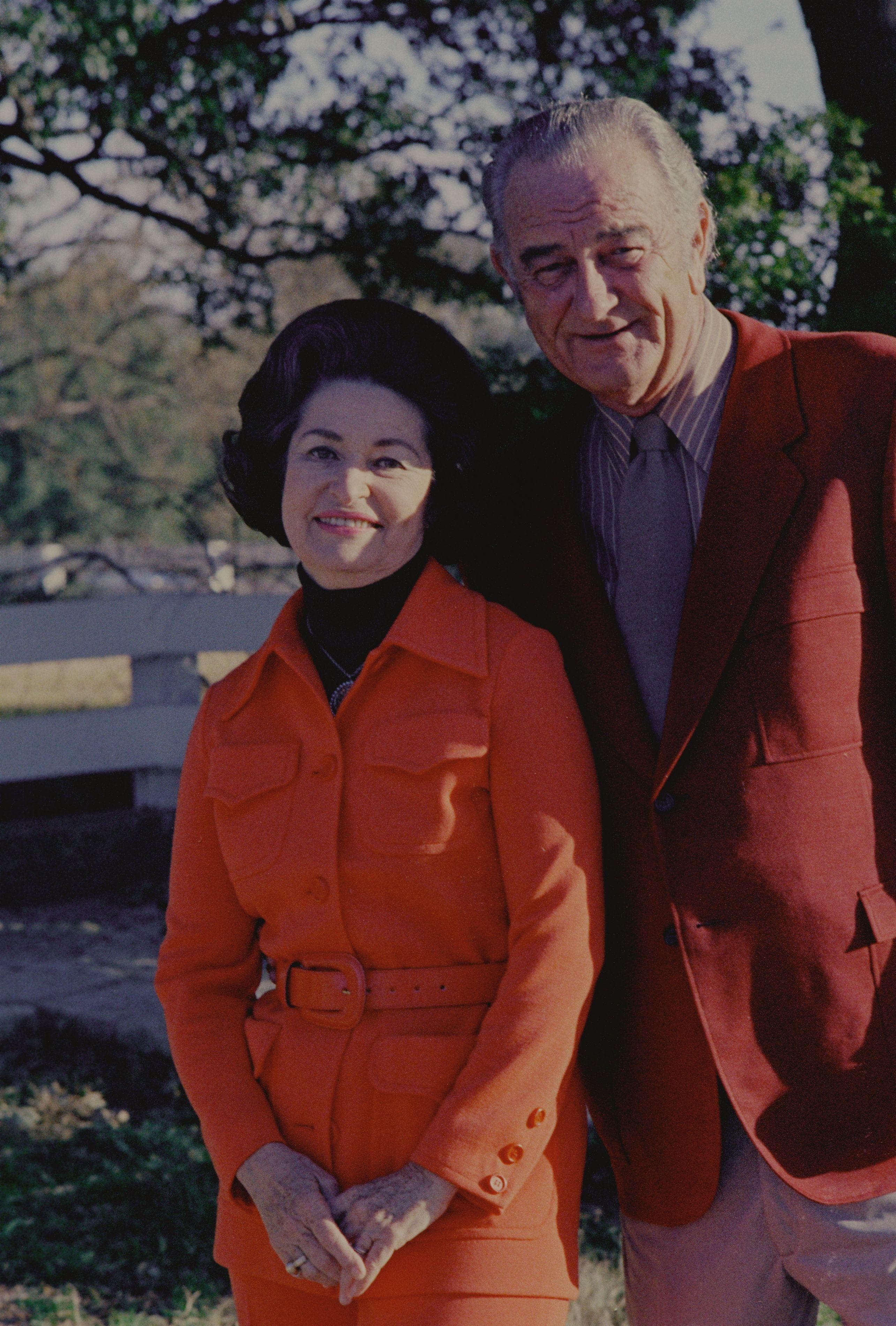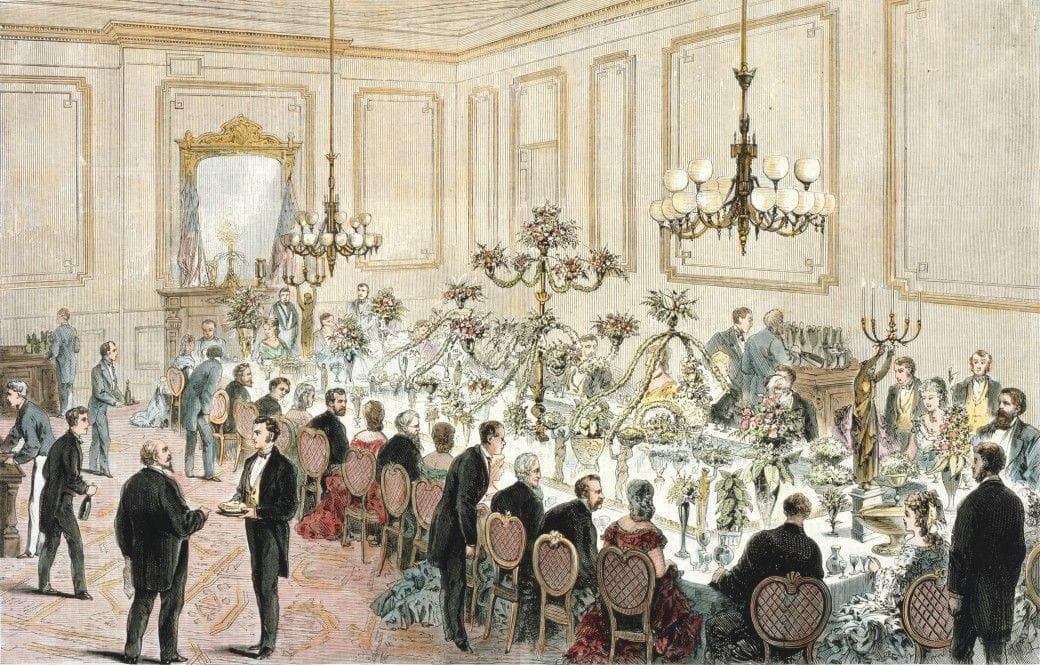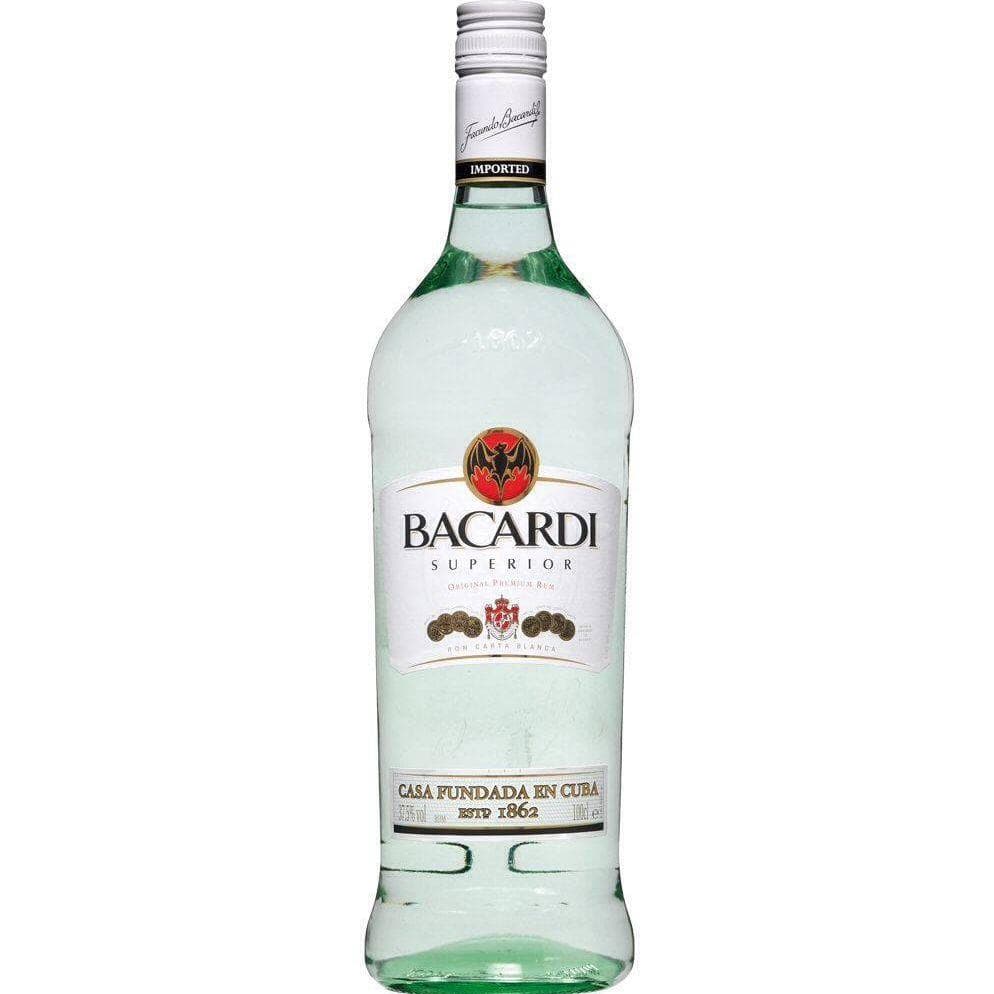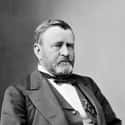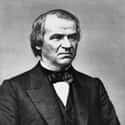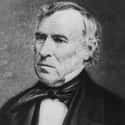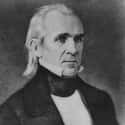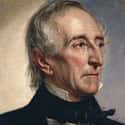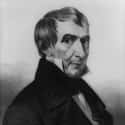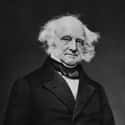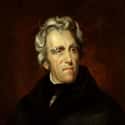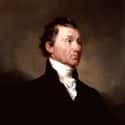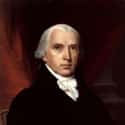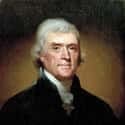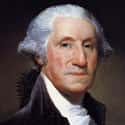-
(#1) Ulysses S. Grant
- Dec. at 63 (1822-1885)
Ulysses S. Grant owned anywhere from one to five slaves, although some likely belonged to his wife Julia. Julia had at least four slaves - Eliza, Julia, John, and Dan - but whether or not ownership transferred to her husband remains unclear. Grant did purchase one slave, William Jones, shortly before the Civil War, but emancipated him in 1859. Later in life, Grant came to condemn the institution and even called it "a stain to the Union."
-
(#2) Andrew Johnson
- Dec. at 67 (1808-1875)
Andrew Johnson owned about eight slaves, but none while he was president. Johnson was a wealthy landowner in Tennessee, where he acquired slaves. During his time in Congress, he strongly advocated in favor of owning slaves and believed this to be a constitutional right. He even pushed for Tennessee's exemption from the Emancipation Proclamation. Johnson began emancipating his own slaves, however, in 1863.
While he never made his personal reasons for freeing his slaves clear, he adopted a more abolitionist platform shortly thereafter. He still argued only white men should have roles in the government, but condemned the practice for slowing societal progress.
-
(#3) Zachary Taylor
- Dec. at 66 (1784-1850)
Zachary Taylor owned no more than 150 slaves and was the last president to keep slaves during his presidency. Taylor had numerous plantations in Kentucky, Mississippi, and Louisiana. However, politically, Taylor had some abolitionist views. He opposed creating more slave states during his presidency. He even tried to push the United States away from the institution by pressing for statehood of California and New Mexico as this would give the North a majority in the Senate.
-
(#4) James K. Polk
- Dec. at 54 (1795-1849)
James K. Polk owned about 25 slaves. As a landowner in Tennessee, Polk had numerous slaves at his disposal. He sold his Tennessee land in 1834 and moved to Mississippi, where he began purchasing more slaves to work his land. Polk brought some of his slaves to Washington, D.C. As president, however, he advocated limiting the spread of the practice. He favored the expansion of the Missouri Compromise line further west, which would widely expand the areas of the United States that prohibited it.
-
(#5) John Tyler
- Dec. at 72 (1790-1862)
According to some reports, John Tyler was physically sickened by the barbaric aspects of slavery. However, this did not stop him from owning about 70 slaves, and he even had slaves during his presidency. Throughout his political career, he faced accusations of fathering children by his female slaves, although the accusations were never proven.
Tyler's views on the practice are unclear. He disagreed with the Missouri Compromise as he opposed federal regulation. He also advocated extending the practice into regions when it was economically beneficial to do so. However, he also felt the institution would die out on its own and supported prohibiting the slave trade and ceasing to import more slaves into the District of Columbia.
-
(#6) William Henry Harrison
- Dec. at 68 (1773-1841)
William Henry Harrison came from a slave owning family and inherited several slaves when his father died in 1791. The family lived on the Berkeley plantation in Virginia where his family owned many slaves to keep the plantation running. Historians agree that Harrison himself only owned 11 slaves during the course of his life.
As a politician, Harrison didn't own slaves during his brief presidency. However, he did not strongly advocate for abolition of the practice either. He was part of the abolitionist Humane Society as a teenager, but was never again heavily associated with the abolition movement. While he was governor of Indiana, Harrison enacted laws that favored slave owners, allowing them to bring their slaves into the new territory despite the fact buying and selling slaves was banned in Indiana. Overall, Harrison saw the practice as a states' rights issue.
-
(#7) Martin Van Buren
- Dec. at 80 (1782-1862)
Martin Van Buren came from a family that owned a few slaves but only owned one of his own. Van Buren's father, Abraham, owned several slaves but Martin's lone slave, Tom, ran away in 1814. When Van Buren found Tom, he sold him for $50 with the stipulation that Tom be taken without the use of violence.
Van Buren viewed slave ownership as a threat to the security of the nation but favored limiting its expansion over outlawing it altogether. During his presidency, he blocked the annexation of Texas for fear it would be a slave state. Van Buren became increasingly against the practice later in life and ran for the presidency in 1848 as a third-party candidate for the abolitionist Free Soils Party.
-
(#8) Andrew Jackson
- Dec. at 78 (1767-1845)
Andrew Jackson owned slaves and was said to have been a slave trader by his critics. In 1804, Jackson purchased the Tennessee cotton plantation The Hermitage and had fewer than 10 slaves. Within 25 years, that number exceeded 100. When Jackson died in 1845, about 150 slaves worked and lived on his property. Jackson both owned slaves born on his plantation and purchased new slaves.
Jackson never expressed any desire to see the practice end and was known to express harsh thoughts on the abolitionist movement. He was domineering with his own slaves, offering rewards for extra punishments inflicted upon runaway slaves. Jackson owned slaves during his presidency and had slaves as servants in the White House.
-
(#9) James Monroe
- Dec. at 73 (1758-1831)
James Monroe grew up on a tobacco plantation and owned his first slave at the age of 16. He was governor of Virginia during Gabriel's Rebellion, a slave rebellion that took place in 1800. The event shaped his beliefs that abolition would lead to violence and war.
Monroe signed the Missouri Compromise of 1820 into law, mostly to avoid civil war. The Compromise prohibited slavery in new territories in the north except for Missouri. Monroe also supported the American Colonization Society (ACS), an organization that wanted to provide slaves the chance to return to Africa.
Monroe continued to own slaves, even during his presidency. His estate at Highland had as many as 70 slaves at its height, but later in Monroe's life, the number was about 20.
-
(#10) James Madison
- Dec. at 85 (1751-1836)
James Madison owned an estimated 100 slaves on his Virginia estate, Montpelier, but was nevertheless critical of the practice. Madison wanted minorities to be protected, but was also the man behind the three-fifths compromise, a policy which counted slaves as fractions of men.
One of Madison's lifelong companions, Paul Jennings, was a slave that accompanied Madison from Montpelier to Washington, D.C. and back again. Jennings served as Madison's personal servant until Madison died in 1836. Dolley Madison sold Jennings and he later negotiated the purchase of his own freedom for $8 a month.
-
(#11) Thomas Jefferson
- Dec. at 83 (1743-1826)
Thomas Jefferson was opposed to the institution, calling it a "moral depravity" and a "hideous blot." However, that did not prevent him from owning more than 600 slaves over the course of his life. Jefferson advocated for the end of the practice during the 1770s and 1780s. As the practice became more engrained in American society, he became more hesitant. He saw the potential emancipation of slaves as a threat to the fragile nation's existence, but also believed the institution would eventually divide the country.
Jefferson had between 165 and 225 slaves at his Virginia plantation, Monticello, between 1776 and 1825 and profited heavily off of his slaves' work growing crops. The Hemings family was a prominent slave family on the Monticello. Jefferson had several children with Sally Hemings. Sally's children denied their lineage later in life.
Jefferson freed two slaves during his lifetime - brothers James and Robert Hemings - and three others were allowed to leave without being persued. Five additional slaves were manumitted as a condition of Jefferson's will.
-
(#12) George Washington
- Dec. at 67 (1732-1799)
George Washington inherited his family's slaves when his father, Augustine, died in 1743. Washington, only 11 at the time, owned slaves for the rest of his life. By the time Washington died in 1799, there were 317 slaves at his Mount Vernon home. Out of these slaves, Washington owned 123 and his wife, Martha, owned the rest after inheriting them from her first husband.
In his will, Washington stated that his slaves should be freed when his widow died, but she signed a doument in 1800 to fulfill her husband's wishes sooner, freeing Washington's slaves on January 1, 1801.
New Random Displays Display All By Ranking
About This Tool
The United States may be based on the idea that all human beings are created equal, but in the late 18th and early 19th centuries, slavery was common among politicians who served as president. All in all, there are at least 12 U.S. presidents, which is more than a quarter of all U.S. presidents who have enslaved people. We all know that the founding father of the United States George Washington and Thomas Jefferson also had slaves.
After the Civil War in the 19th century, the United States completely abolished slavery. The public actively maintained the image of the fathers of the country and tried to minimize the history of the slave owners. The random tool lists 12 American presidents who owned slavers.
Our data comes from Ranker, If you want to participate in the ranking of items displayed on this page, please click here.

